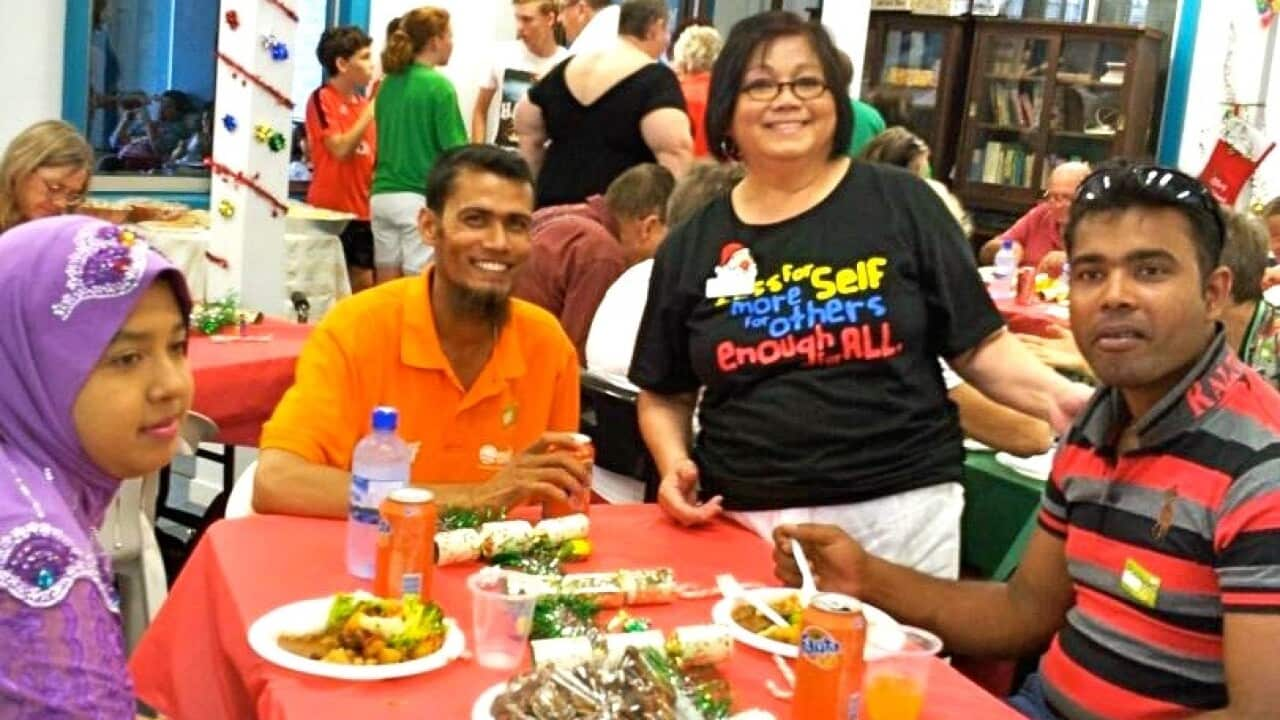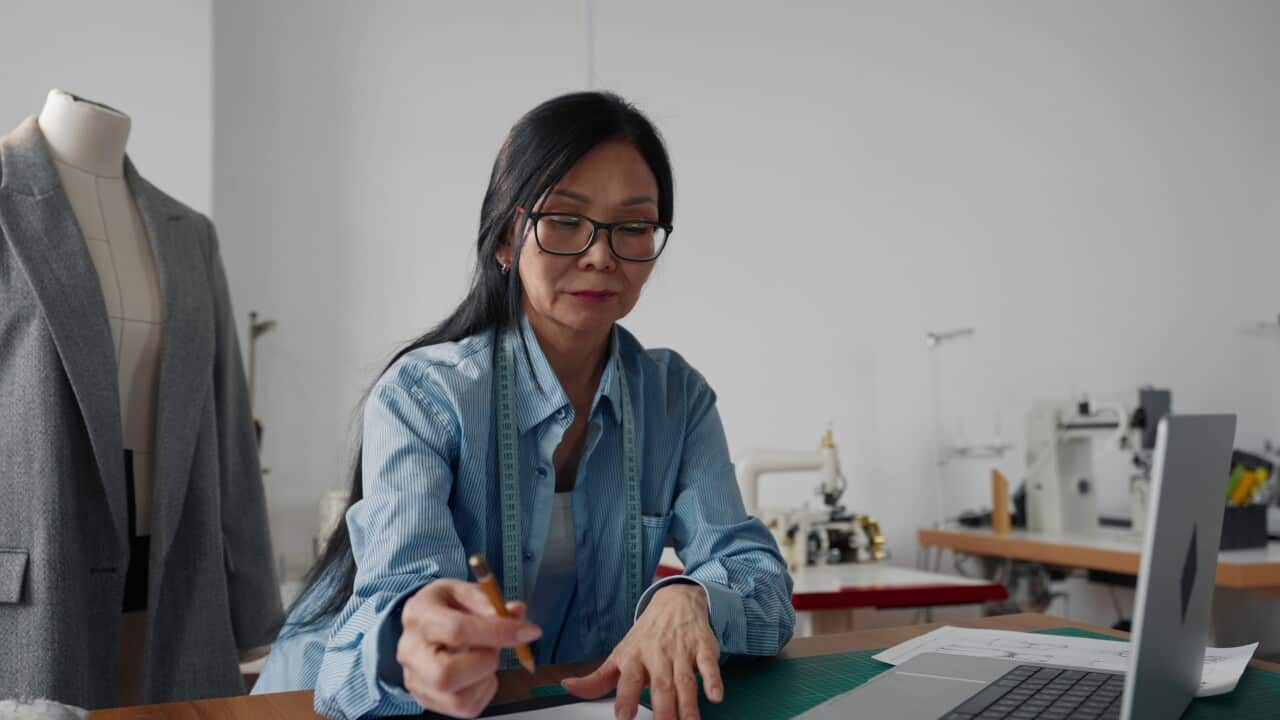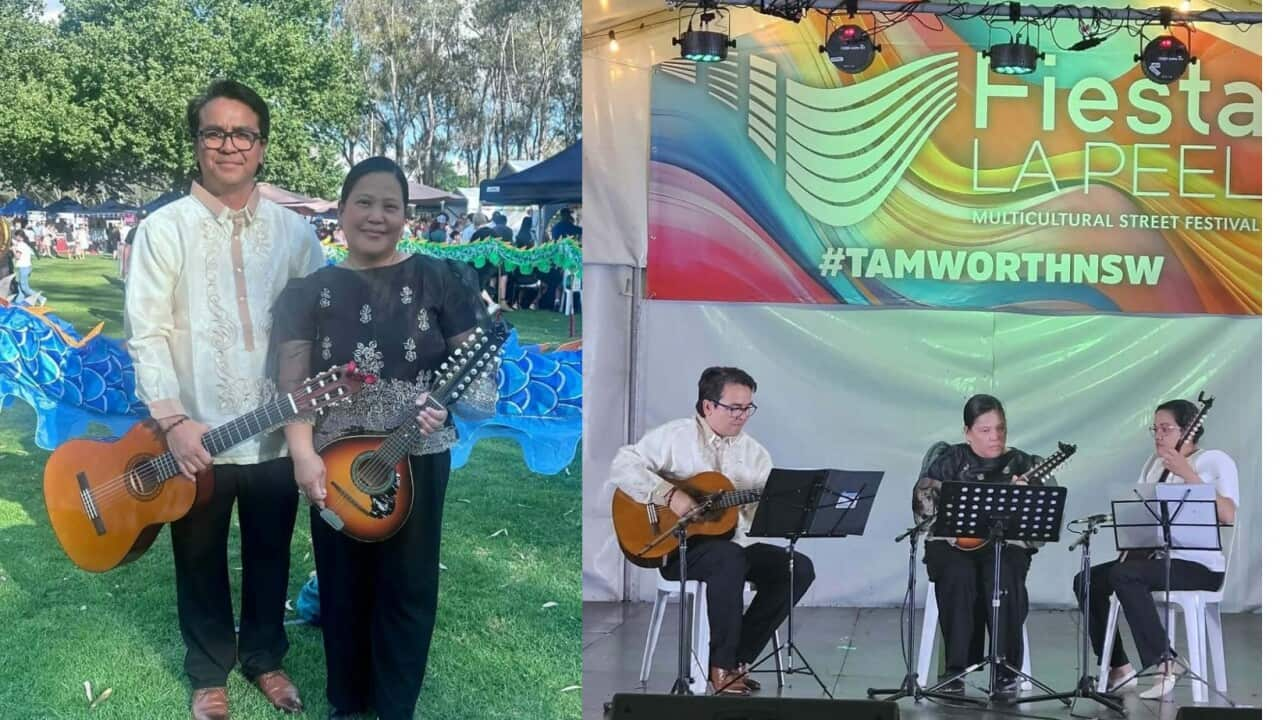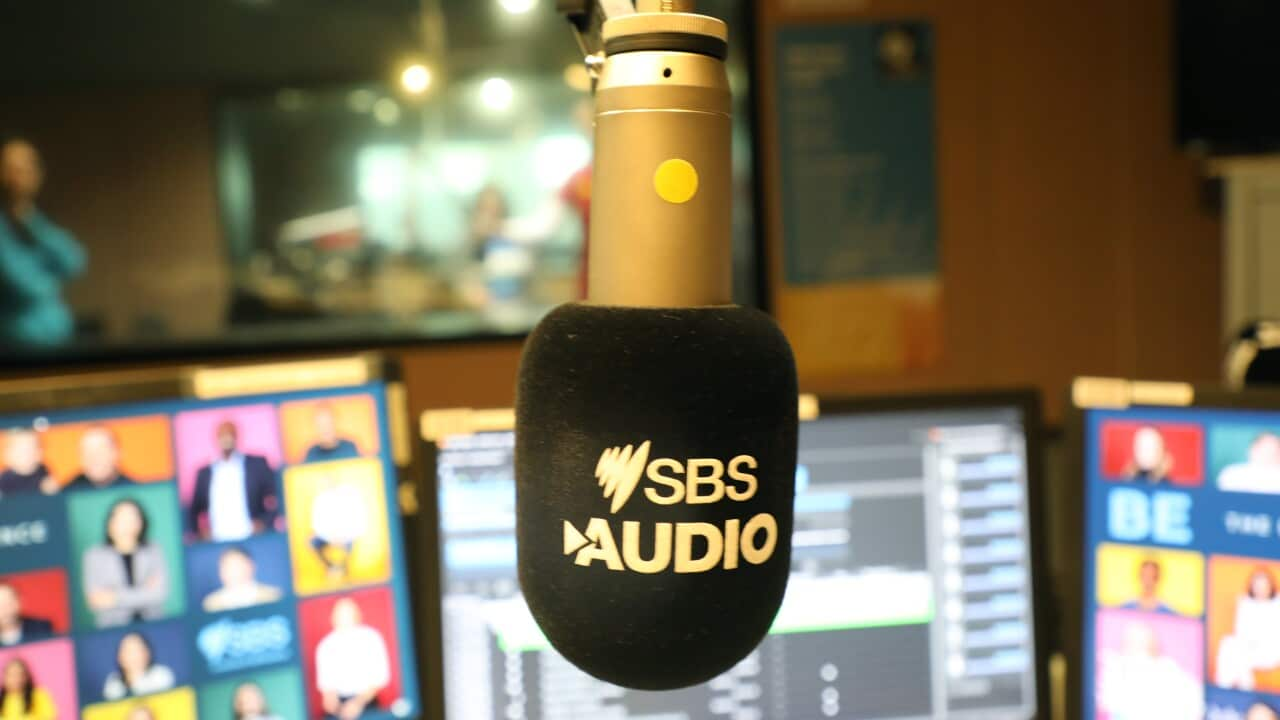Bahatala is the acronym for the Tagalog words “Bahay Hawak Tayo Lakad”, or in the verbatim translation “house to hold to stand to walk.”
The centre was established by Dr Jose Antonio Socrates, better known as Doc Soc, a renowned internationally-trained Filipino doctor and environmentalist who passed away in 2012.
He was survived by his wife Cecilia Socrates, who continued the foundation’s mission of providing free orthopedic and rehabilitative services to Palawan’s underprivileged population
It has relied solely on international funding, a difficult endeavour for a non-profit medical facility.
In 2015, the two full-time prosthetist-orthotists who, despite being well-trained by Doc Soc, needed new medical knowledge and technology to modernise its workshop. They needed someone like Udo.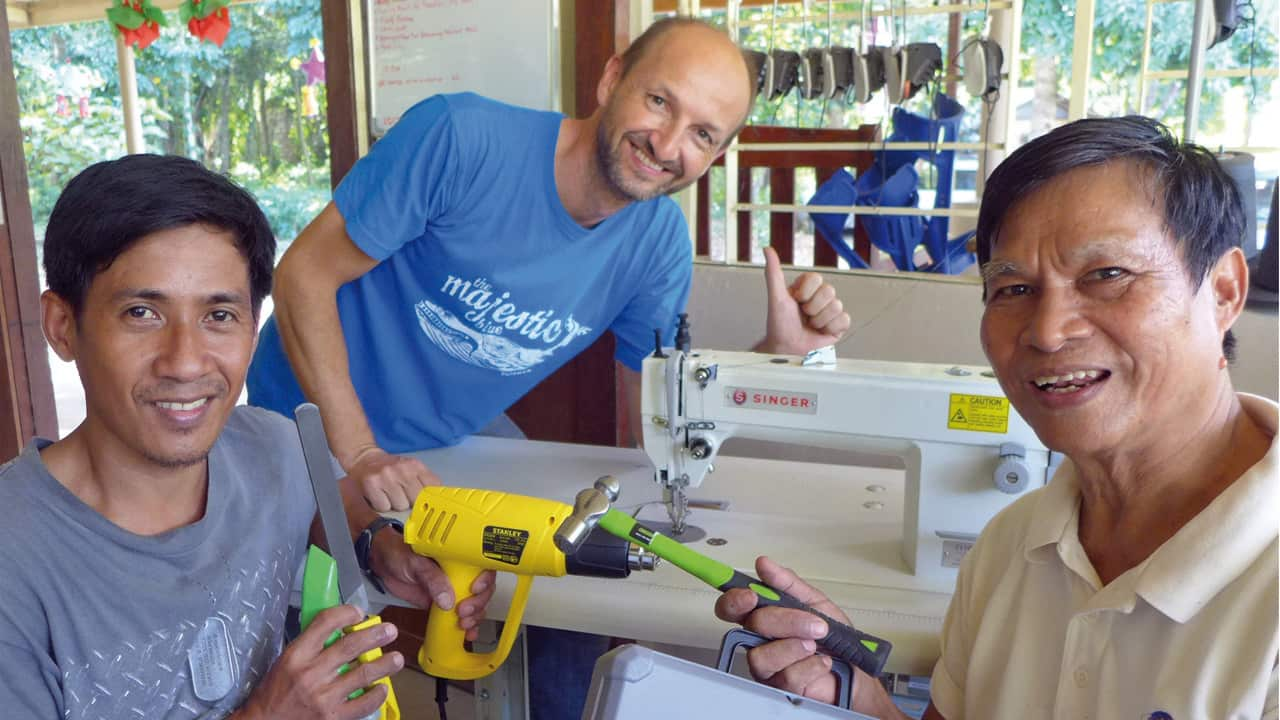

Udo helped train two fulltime prosthetist-orthotists of Bahatala Rehabilitation Centre in Palawan. Source: Supplied by Udo Foerster
Just like applying for a job
Udo found the job ad in a newspaper. The Australian Volunteers Program was looking for a prosthetist-orthotist to be assigned overseas. Udo was intrigued.
“It was for a prosthetist which is not very common. It’s not common to be put in assignment for volunteers. When that happens, there’s usually a crisis, like the occurrence of a war. But in civil life, it’s not common to have those appointments.”
Udo was among thousands of volunteers accepted into the initiative, which is part of the Australian government’s aid program.
A representative from the Australian Volunteers Program likened it to a job matching platform, except the skilled Australians are sent out with a specific purpose of enriching the partner organisations across the Indo-Pacific region, including the Philippines. 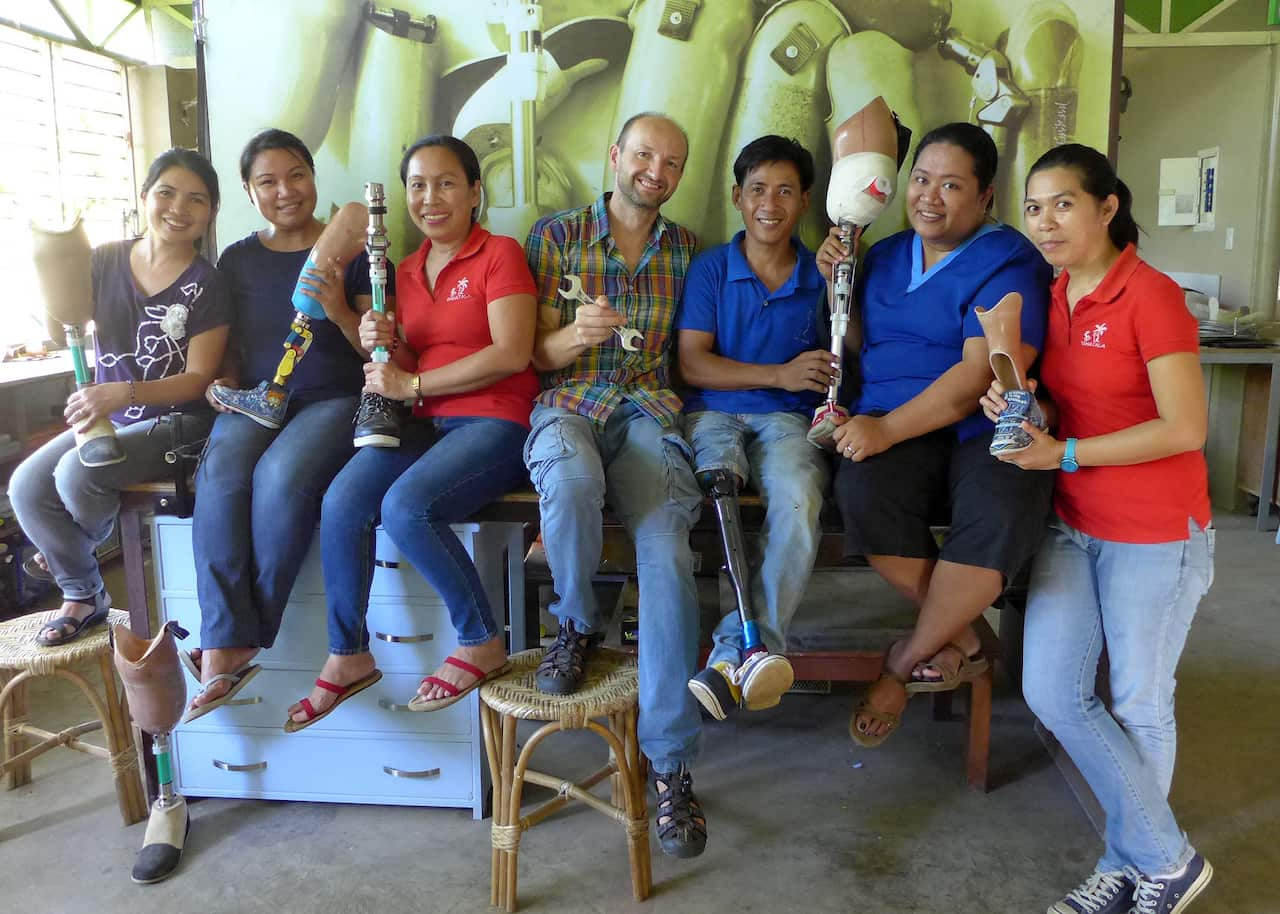 When Udo set foot in Bahatala, he was actually impressed with the rehab centre.
When Udo set foot in Bahatala, he was actually impressed with the rehab centre.

Udo describes his stay in Palawan as a humbling experience. Source: Supplied by Udo Foerster
“The level was actually higher than what I thought. There was a great facility with special machines.”
But Udo soon found where the limitations lied. The budget was small, and most of the materials needed to manufacture the latest and up-to-date prosthetic limbs were not available in the Philippines, especially on an island like Palawan.
An arm and a leg
Then of course, there’s the cost. A custom-made artificial limb ranges from US$5,000 to US$50,000, hence, the root of the idiom “cost an arm and a leg".
So Udo had the work cut out for him. “I brought some samples from overseas and lined up some supplies we could fit into the budget,” he shares.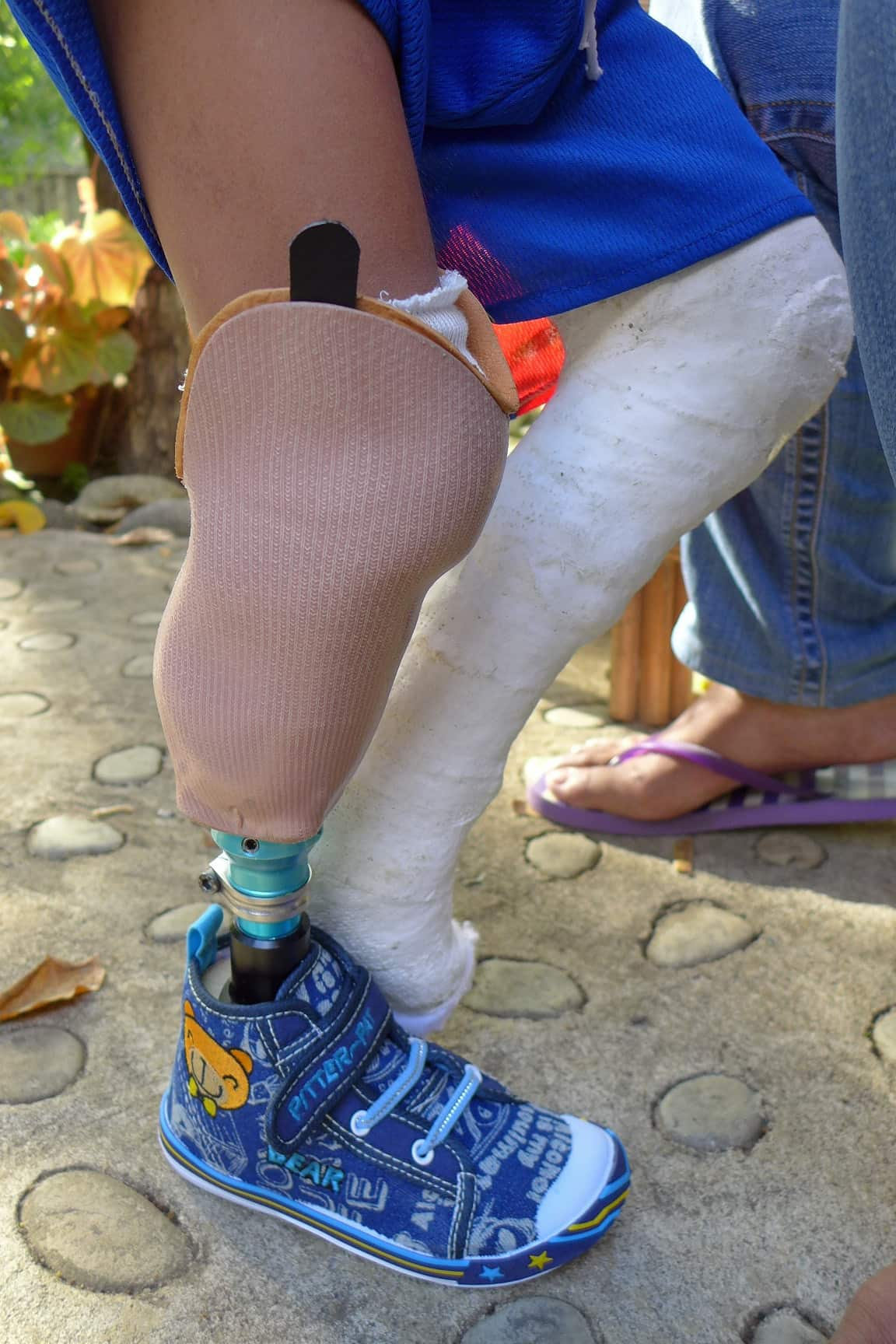 Learning to work around the limited budget, resources, and staff, Udo’s one-year stay was a humbling experience.
Learning to work around the limited budget, resources, and staff, Udo’s one-year stay was a humbling experience.

A custom-made artificial limb ranges from US$5,000 to US$50,000. Source: Supplied by Udo Foerster
“A lot of the things back home in the West are automated, but there, one does everything from scratch because of accessibility and funding. I definitely learned to do everything from start to finish. And remember that simplicity and things can be changed, even if the going is hard.”
Among many patients Udo encountered, he’s never forgotten a nine-year-old boy who both had a club foot and a missing leg. “It was a birth defect. So when we found him, he was walking on his knees on one leg.”
The club foot wasn’t a problem. Udo said the Bahatala centre is already an expert in fixing club feet. But getting a prosthesis for the leg was complicated.
The boy had to undergo an operation on the remaining part of the limb, then wait for a few months to heal. It took all of eight months to finally fit the boy with the prosthetic leg.
“He could walk independently, which meant he could go to school. Just be a normal child and do the things he should be doing as a young boy,” Udo added.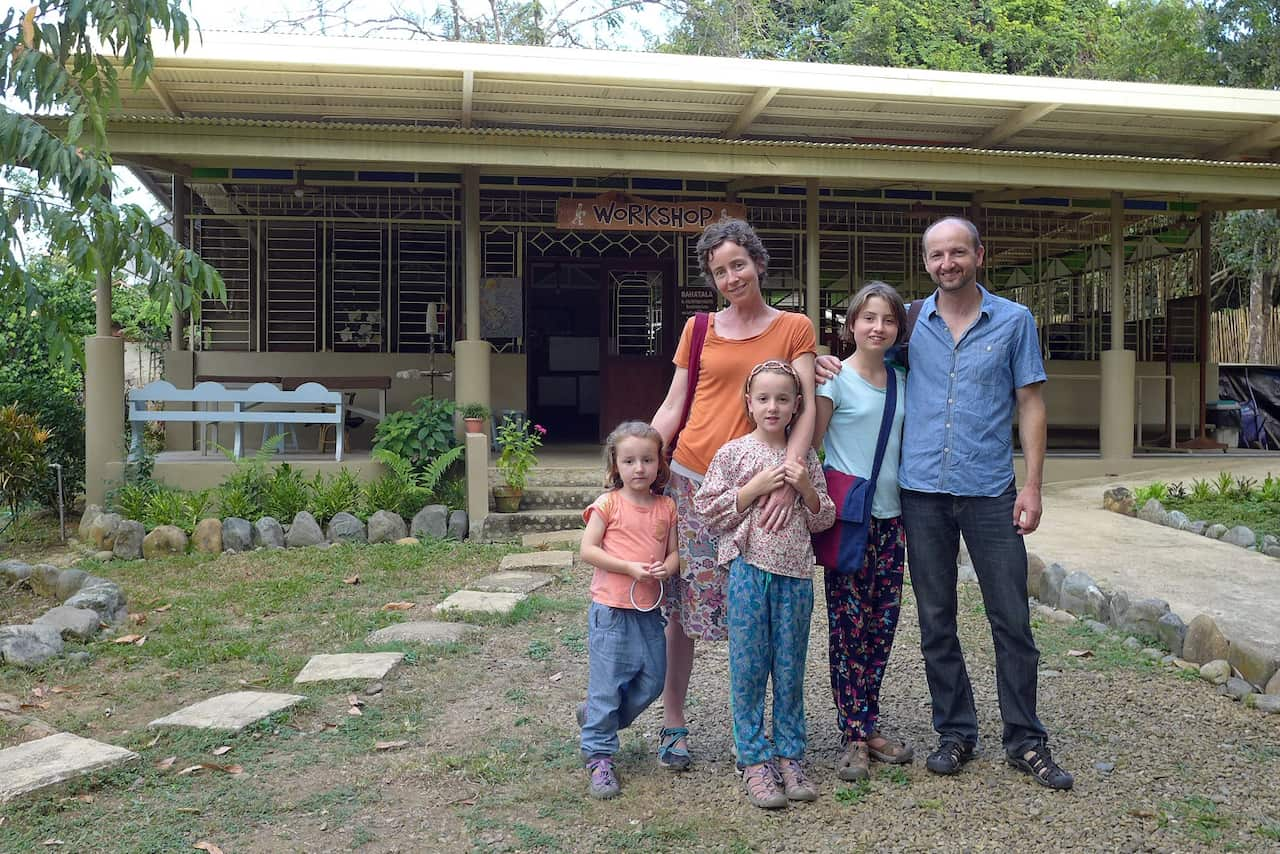 Udo stayed for a year together with his family in Puerto Princesa. His kids were homeschooled, his wife quickly made friends.
Udo stayed for a year together with his family in Puerto Princesa. His kids were homeschooled, his wife quickly made friends.

Udo Foerster with his family, in Puerto Princesa, Palawan. Source: Supplied by Udo Foerster
No sooner had Palawan started to feel like a home that they needed to go return to Melbourne in January 2016.
Their time was up in the Philippines, but this didn’t stop Udo from helping a continent away.
Four years later
Through the years, Bahatala continued to communicate with Udo, picking his brains on whatever roadblock they’ve come up against. For his part, Udo happily obliged. He was like their overseas consultant.
In 2020, just before the pandemic spread all over the world, Udo applied for the Australian Volunteers Program’s Go Back <> Give Back competition and became one of eight chosen winners.
The chosen winners were supposed to return to their partner organisations to co-design and deliver a small project using an $A6,000 financial grant.
But due to the pandemic, the program re-shifted Go Back <> Give Back into a financial grant and remote volunteer work.
Most of Udo’s competition grant was donated to Bahatala. Due to heavy rains on the island, the workshop needed repairs and renovations. This will allow the workshop’s operations to continue despite the weather.
Udo’s contribution was to conduct webinars via Zoom for the prosthetist-orthotists and the rehabilitation workers.
Udo is first to admit that this kind of volunteering is limited.
“Of course we couldn’t do the hands-on experience with people. They’re not guinea pigs. Certain things cannot be taught, but some things can. Despite all this, I hope the staff can benefit from the knowledge.”
Though Udo couldn’t go back, this didn’t stop him from giving back. And looking back, his memories of Palawan are vivid like it was just yesterday.
Until then, he remembers fondly the kilawin, the different kinds of rice, the smiles from the staff, and the small miracles he witnessed, such as a Palaweno kid’s first wobbly steps wearing a prosthetic leg.
ALSO READ OR LISTEN TO

